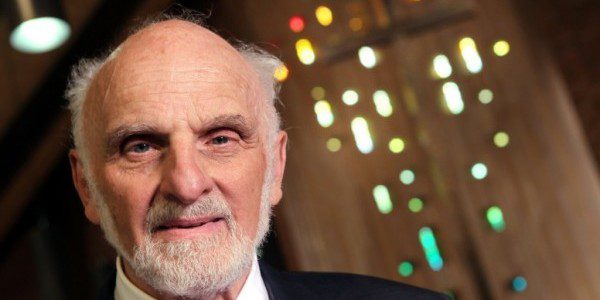Walter Brueggemann is a rare bird. He’s a biblical scholar, an Old Testament theologian, with an acute sensibility for the contemporary significance of that ancient text.

He seems to have imbibed the spirit of the prophets–ingesting and applying their “prophetic imagination” to problems and challenges of our time. His close attention to the ancient text seems to have given him a freedom to speak between worlds–with words of encouragement and inspiration and with words of incisive criticism.
In other words, he doesn’t seem easily beholden to ideological commitments, but displays both respect for the seriousness of the Bible (and the “authority of Scripture”) and realism about the humanity reflected in and through it–both in its original formation/formulations and in subsequent traditions of interpretation.
As I began to more systematically work through some of the conflicts and problems in the Bible and in the definitions of “biblical authority” I had inherited, Brueggemann was one of the theologians to which I turned.
I discovered his collection of essays in The Book That Breathes New Life and found there a treasure trove of measured, thoughtful, and yet incisively prophetic reflections on the Bible. He writes there both about the concept of authority (and the myriad ways that concept is misused and misunderstood) as well as about contemporary issues in the theological and biblical interpretation of the Old Testament.
He brilliantly models holding the tension of respect for the Bible and realism about its limitations. He explains how the Bible can be so disparately read and applied. It works well as a tool for ideological power and oppression as well as a instrument for righteous critique and liberative empowerment.
The Bible is a strange book; or rather, it is a collection of writings that open up a “strange new world”–to use the familiar Barth phrase of which Brueggemann is so fond. But for that strange new world to be the provocative, empowering, prophetic world that it can and should be, the reader must have cultivated an imagination that is capable of engaging it and hearing it on its terms, more than on the reader’s.
In a time of deep and increasing polarization, Brueggemann challenges us to see that ideological commitments themselves cannot give us access to the life-giving “new world” that the Bible can open up for us. For that, we need a prophetic imagination–an “alternative consciousness”–that is opened up for us by the intersection of Scripture, Spirit, and interpretive community.
But Brueggemann himself puts it better than I can in his preface to the recent edition of Book That Breathes:
In the end, scripture is not a contest to see who can prevail in interpretation. It is, rather, an address that offers a “newness” and a “strangeness” that are out beyond all of our pet projects. It is urgent, even if difficult to remember that it is “The word of the Lord” and not our world. The “world” given us in the text, moreover, is not our world but God’s new world into which we ourselves invited as sojourners and eventually as citizens. The offer is a homefulness amid our deep, shared homesickness. It is, however, home on terms other than our own!
Tripp Fuller, of Homebrewed Christianity fame, interviewed Brueggemann recently. The whole thing is worth a listen. Furthermore, you can hear him present at the Enfolding Theology conference in Redondo Beach, CA, March3-5.
For more posts and discussion on theology and society, like/follow Unsystematic Theology on Facebook











